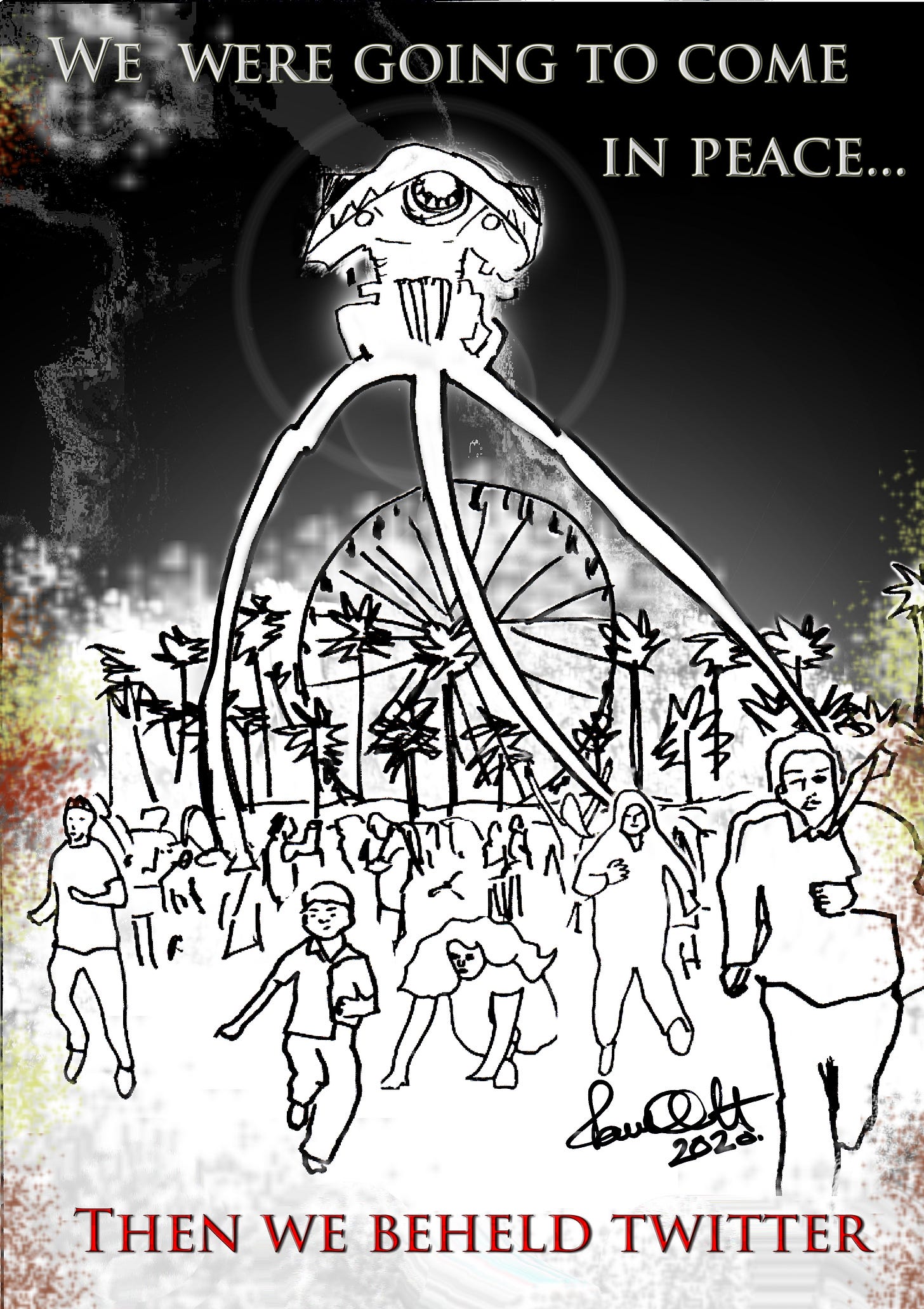Fiedler sent me the questions APS asked him, and his responses. They are reprinted here. The APS letter to Klaus is shown in this regular font. His responses are in italics.
Why Might This Interest You?
It reveals APS judgment processes and their limitations and failures.
It reveals some of Fiedler’s thinking in making some of the decisions he made.
It fails to identify egregious behavior on Fiedler’s part, yet he was fired.
Credibility of psychological science. It says a lot about how Psychology and academia now function, which is something to keep in mind when evaluating what does, and does not, make it into the published literature.
The APS Email with Questions Directed to Klaus Fiedler, and His Responses
Dear Klaus,
I am writing in my capacity as Chair of the APS Publications Committee. As Rob Gropp noted in his email to you, a great deal of concern has been voiced in the public discussion about the Perspective articles on diversity. Both the commentary that has appeared on social media and the formal communications to the APS have been contentious and will require a formal response from the APS.
We would very much appreciate it if you could provide us with more information about the process and your objectives. In particular, if you could provide information on the following, it will assure that we are accurately informed.
1. What was the intent of the discussion forum? Was it intended as a response and expanded discussion around Steven Roberts’ 2020 paper that Hommel addresses in his article? Was it intended to be a discussion on Hommel’s arguments or Roberts’?
2. Why were only the reviewers of the Hommel paper (who all reviewed the article favorably) invited to the forum? Was it intended to be an open scholarly exchange, or a limited consideration of one perspective/argument/article? In other words, was the forum intended to be a dialogue about of various viewpoints, or an elucidation of one viewpoint from multiple authors?
Response to 1. and 2.: I found this was a particularly insightful review process, and I therefore thought I should invite the reviewers to submit their reviews. Such a forum might instigate novel research on diversity. In addition to the three reviewers, I invited Clinton Roberts, although he had declined my invitation to review. (You can read all this in the text of my emails, which Roberts felt free to publicise)
3. When and for what reason was it determined that the commentaries on Hommel’s article would not be reviewed externally?
PPS is a journal that allows for invited contributions without peer reviewing, as you may know. The reviews were strong enough to allow for such an exceptional procedure. I'd be happy for any arguments speaking to the contrary.
4. When and why was the decision made to treat Roberts’ reply differently from the other submissions (I e., by soliciting input from another author in the forum)?
Roberts was not treated differently, in principle. On the contrary, he could read all other articles before he submitted, whereas the others could not see his manuscript beforehand. The only difference is explained below.
5. What was the reason for requesting a “quality check” on Roberts’ reply from Hommel, but no similar check on any of the other commentaries?
Although all comments were (conditionally) accepted, it is of course my responsibility to make sure that there are no formal or factual inconsistencies. In Roberts manuscript, several details seemed to be incompatible with the other comments, and I was overwhelmed by the length of the manuscript and the amount of information. So I asked Hommel to help me checking the manuscript for consistency. As you may know, I told Robert that this was no review but simply a quality check. So, Roberts was not urged to respond to every point raised by Hommel. I merely wanted to help the authors avoiding embarrassing contradictions. Again, all this can be read in the confidential information that Roberts chose to append to his uploaded article.
Kind regards, Klaus
My Commentary (LJ)
There is enough here for anyone to feel vindicated. The mob and APS can say, “See! APS did its job, they contacted Fiedler and asked for his view before firing him!”
Fiedler and his supporters can say, “They asked a few narrow questions, more in the style of an interrogation, focusing exclusively on the facts of the event, and no wider context.” What sort of “wider contexts” might be relevant?
What are APS’s ethical principles that Fiedler supposedly violated? Absent any such identification, the proceedings deserve no credibility.
What are the norms among prior editors at PoPS? Did they accept commentaries without review? How about at other journals?
Why was firing the “right” response, rather than something far less disruptive?
In an Alternative Universe…

The process could have been more deliberative, less disruptive, and less ideologically charged. APS officials would have talked to Fiedler, and not fired him in 3 days. Fiedler could have been urged to identify some potential commentators more likely to be supportive of Roberts and not publish the exchange until that was complete. I could easily have been convinced to drop the horse/mule metaphor if Roberts dropped his histrionic “racism” denunciation. Although the nonexistence of the racist mule trope is a topic for an upcoming essay here, I still would have dropped it. How about APS guiding a process encouraging everyone to turn down the heat a bit?
PoPS would still have an editor and associate editors and would not have needed to suspend operations, the discussion would have proceeded more constructively, and APS would not be exposed to credible charges of “woke takeover” and “kangaroo court.” This event is not what inspired DeSantis and Rufo to engage in a conservative attempt to remake a Florida college; but it is the type of event that has inspired conservative exercises of political power to rein in academics gone progressively more and more wild.
Back in this Universe
Even the deliberative process I proposed above would not have been perfect. The mob smeared all of us involved and revealed the depth of vindictiveness and censoriousness that infects psychological science. APS, as an organization, could not have done much about that, at least, not in the short term. On the other hand, APS “represents” its members and reflects its leaders’ interests. Most likely, then, the entire episode functioned as a purge of PoPS’ editorial board and consulting editors, allowing them to be replaced by APS members who “reflect their values” which is usually a signal for progressive antiracist dogmas.
I was disappointed to see some of the signatories to the mob’s open denunciation letter; people who have previously voiced both recognition and opposition to rising illiberalism in academia and the progressive left, people whose scholarship focuses on bridging divides and hyperpartisanship in order to have a chance to reduce it and increase mutual understanding. I contacted a couple. To a person, their argument was some variation on “Fiedler’s behavior was egregious and he deserved to be fired.” They identified things they did not like or disapproved of, but never identified why whatever they complained about was so egregious it warranted firing, but let’s put that aside.
“I signed an open letter demonizing my colleagues as racists and calling for outright censorship because I wanted to get Fiedler fired” is a utilitarian argument (“getting Fiedler fired justifies my signing.”). This is an ends justify the means argument. Such arguments have a bad reputation because all ends do not justify all means. However, some ends do justify some means, it depends on the ends and means. Such an argument says, “Firing Fiedler was so important that I was willing to endorse all sorts of other toxic, authoritarian stuff that I do not really mean.” Of course, this analysis only applies to those making this argument; I recognize that true believers really viewed all of us as racists and enthusiastically endorsed the call for censorship.
Regardless, utilitarian arguments can be judged by utilitarian outcomes. Is APS and PoPS kowtowing to an academic social media outrage mob a “good” thing? Does the purge of scientists who believe science should eschew activism and stick to truthseeking cause more good or harm? Is the alienation of scientists who “do not share APS’s values” a good thing? If you do think these are all “good things,” please explain to all of us again how denunciation, demonization, and alienating those you disagree with or disapprove of will help you create a “diverse and inclusive” psychology, rather than a political monoculture.
If this really is how academia rolls now, there never was a serious chance that APS leadership would produce a deliberate and constructive resolution. As I wrote here, in academia, it was going to get worse before it gets worse, no matter what APS did.






